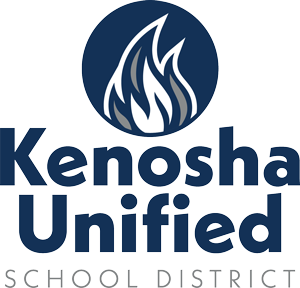We are writing with an urgent appeal for the 830,000 students across Wisconsin being educated in public schools, specifically the 19,583 students of the Kenosha Unified School District. We are asking you to support the key components of the public education budget proposed by Governor Evers and recommended by the Republican-led Blue Ribbon Commission, which would fund the priority needs of special education, mental health, English language learners, and students in poverty, along with addressing our state’s educator crisis. Your votes will have a direct impact on the students of Kenosha Unified, the third largest school district in our state. Our students are counting on you to reach a bipartisan agreement to support investing in our state’s children and communities.
First, we ask that you vote to fulfill the legal and moral mandate of special education by increasing the state’s reimbursement rate from less than 30% to 50% by 2023. The state of Wisconsin currently funds special education in private voucher schools at the rate of 90%. With adequate funding for special education, Kenosha Unified would no longer have to divert as many resources from the general fund in order to meet unfunded special education mandates, thus we could better serve all our students. Although the state slightly improved the reimbursement rate in the last biennium, nationally Wisconsin remains near or at the bottom in funding support in this area. Let’s fulfill our obligation, and do what’s best for all students, by improving our state’s special education funding once again.
Second, we ask that you prioritize mental health funding. The COVID pandemic and 2020-21 school year have highlighted the vital role our public schools play in identifying and addressing the mental health needs of our students. We have heard feedback from our families, students, and educators regarding the prevalence of mental health concerns and our need as a district to prioritize our students’ mental health. Statistically, prior to the pandemic, one in five students experienced a mental health issue. The pandemic has exacerbated these needs and our schools require resources to address them.
The School Social Work Association of America recommends a 250:1 student to social worker ratio. In Wisconsin, school social workers are staffed at a ratio of 1,528:1. Critical mental health supports should be available to students in every district in our state. Districts should not have to compete for funding that could provide life-saving support to our children. Let’s find common ground in Gov. Evers proposal to reimburse public school districts at a rate of 10% for the vital mental health roles of our schools’ social workers, counselors, psychologists, and nurses.
Third, we request approval of the proposed $28 million in funding for our English Learners. Expert testimony to the Blue Ribbon Commission on School Funding described Wisconsin as the worst state in the country in funding to support our ELs. In Kenosha Unified, 9.2% of our student population, or 1,803 students, requires English language support.
Next, we ask for approval of equity funding for our lowest income students. A per pupil payment of $750 for every student, in addition to $75 for each economically disadvantaged student, will enable our district to target efforts toward closing gaps. This is critically important for urban districts like ours where a majority of students are economically disadvantaged and often face unimaginable challenges daily. Please help us to meet the needs of students living in poverty so all of our students may have the resources and support needed to be successful.
Lastly, the pandemic led many families to make tough decisions for their children this year. Some made the choice between in-person and virtual learning, while others with young children entering 4K and kindergarten simply chose not to enroll their children at all during a global pandemic. As a district, we greatly felt the impact with nearly a 6% decrease in enrollment from the fall of 2019 to the fall of 2020. We believe this to be temporary, but the impact on the Revenue Limit three year average of enrollment will remain and create a multi-year reduction in revenue for districts across the state. We ask for your support in changing the Declining Enrollment Exemption and the Hold Harmless exemption from non-recurring to recurring exemptions for each of the years covered in the biennium.
In conclusion, we ask for a bipartisan agreement to address priority needs at the state level. The Wisconsin Public Education Network Executive Director, Heather DuBois Bourenane, noted, “This budget invests in priority needs and puts spendable dollars in the classroom where they’re needed most. We CAN afford to support our public schools while holding the line on taxes. And there is absolutely no excuse for not doing it.” The students of Kenosha and the state of Wisconsin are counting on you to invest in their futures. Thank you for your time and consideration.
Dr. Sue Savaglio-Jarvis
Superintendent of Schools
Mr. Tom Duncan
President, Kenosha Unified School Board
Tanya Kitts-Lewinski
President, Kenosha Education Association
Dr. Todd Alan Price
Kenosha Unified School Board (elected)
Gina Reitman, Kendra Koeppen-Mulwana
Co-Chairs, Kenosha Budget Justice Committee
